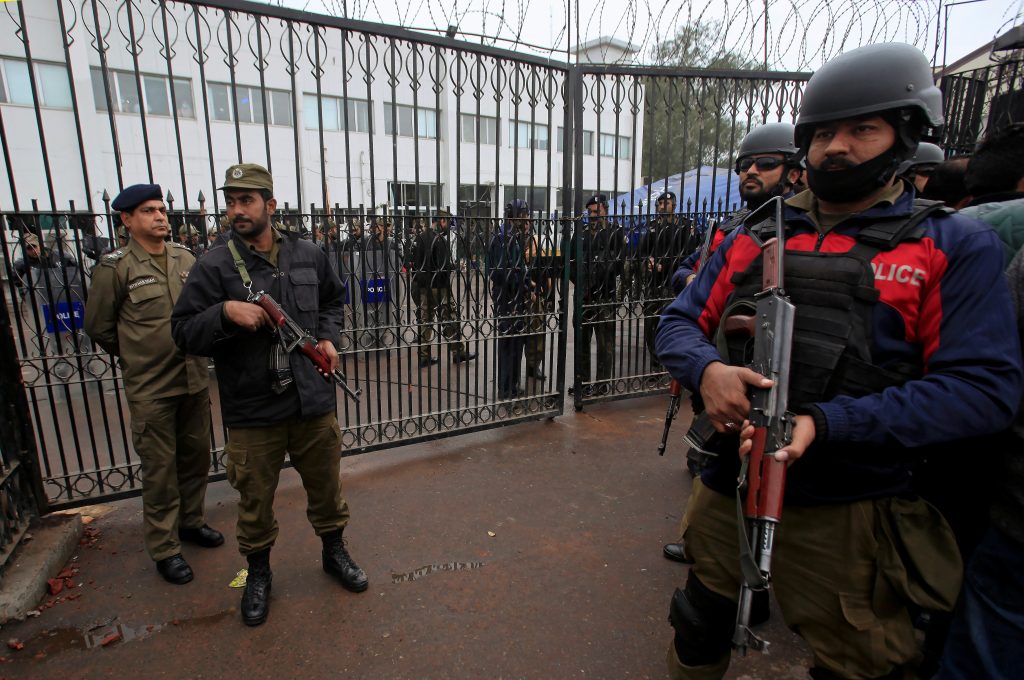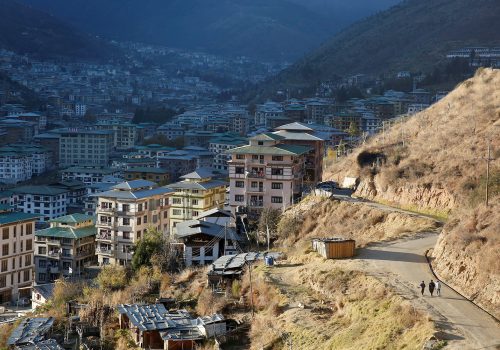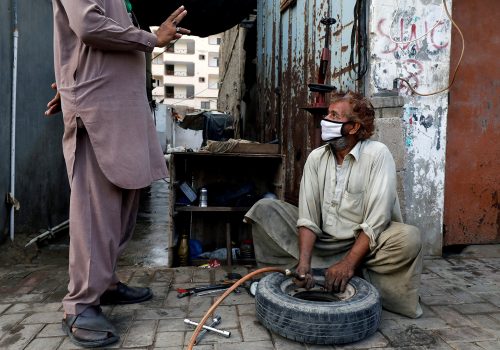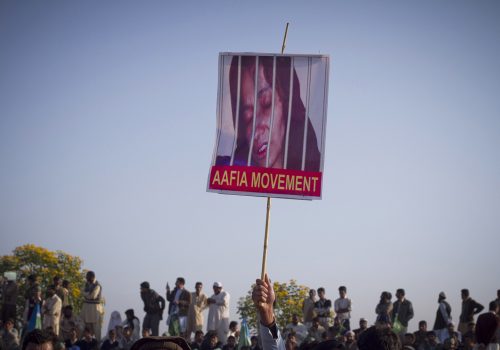On August 10, 2020, the Atlantic Council’s South Asia Center hosted the Assistant to the Prime Minister of Pakistan on National Security Division and Strategic Policy Planning Dr. Moeed Yusuf for a moderated Q&A on Pakistan’s national security challenges. Dr. Sahar Khan, an adjunct scholar at the CATO Institute, moderated the Q/A which featured several notable experts on South Asia including Safiya Ghori-Ahmad, Sajit Gandhi, Mark Brunner, Dr. Paul Staniland, and Dr. Chris Clary.
Executive Vice President of the Atlantic Council Damon Wilson provided introductory remarks, previewing the conversation about Pakistan’s unique position with regards to addressing its national security challenges. Mr. Wilson provided an overview of Dr. Yusuf’s political profile and distinguished achievements over the years, reminding viewers that it would be Dr. Yusuf’s first engagement with a Washington-based audience since his appointment as special advisor to Prime Minister Imran Khan.
The webinar then moved into Dr. Yusuf’s brief overview of Pakistan’s outlook on national security. He prefaced with insights into his multifaceted role as a national security advisor & as head of policy planning, which involves designing long-term strategies on a range of security issues as well as nontraditional security areas such as food security. Dr. Yusuf explained that his first challenge as advisor to Prime Minister Imran Khan was the novel coronavirus. He mentioned how his mindset as the former Associate Vice-President at the US Institute of Peace has had to shift when he assumed his role in the Pakistani government.
Dr. Yusuf went on to explain that Pakistan’s foreign policy should be characterized by economic diplomacy. Traditionally, Pakistan has been only referred to in the lens of conventional hard security. However, he signaled that this paradigm shift is not necessarily a shift for Pakistan but a shift in the perception of Pakistan by the international community. Its economic diplomacy could consist of a combination of commerce and Pakistan’s bilateral relations with countries in a refined economic manner, allocating space for investment and regional cooperation.
According to Dr. Yusuf, Pakistan’s domestic affairs and South Asia’s regional harmony have been hijacked by threats on the eastern front in the form of India, foreshadowing a major rupture. He highlighted that Pakistan supports a swift Afghan peace process aligned with the interests of the Afghan people. Dr. Yusuf also stressed that Pakistan considers both China and the United States strategic partners, as it aims for investment from large, developed economies.
Next, Dr. Sahar Khan guided a Q&A portion amongst prominent South Asia scholars in the Washington, DC community. She began the Q&A by asking Dr. Yusuf why US officials do not publicly disclose their gratitude for Pakistan’s cooperation in the Afghan peace process. Dr. Yusuf argued that disapproval and criticism of Pakistan by the United States has declined considerably. He asserted that American think tanks have been perpetuating a narrow-minded obstructive archetype for Pakistan that persists, and should push to eradicate that mindset from policymaking spaces.
Dr. Paul Staniland, an associate professor at the University of Chicago, posed a question on the credibility of Pakistan to condemn Indian violations of human rights in Jammu and Kashmir given that its own human rights record faces heavy criticism from various human rights watchdog organizations. Dr. Yusuf argued that the violations in Jammu and Kashmir merit the scrutiny of the international community because it is a violation of international human rights law. The plight of human rights in countries outside of Kashmir are wholly divergent from those that may exist inside Pakistan. Nonetheless, he conceded that Pakistan must strengthen its public diplomacy.
Dr. Chris Clary, an assistant professor at the University of Albany, posits Pakistan’s current economic model as unsustainable and troublesome in response to the contemporary challenges it faces with the COVID-19 related recession. Dr. Yusuf explained that the budget does not accurately reflect Pakistan’s fiscal expenditures due to the unheralded repercussions of COVID-19. He continued, arguing that it is reckless to advise Prime Minister Imran Khan to ignore the threat it faces on its Eastern border with India and to not allocate the necessary resources towards its defense sector. Dr. Yusuf believes that, if the international community (namely the United States) helps secure Pakistan’s borders – specifically in regards to an emerging threat from India – then it would be able to dispense the appropriate resources to maintain its domestic infrastructure.
Safiya Ghori-Ahmad, nonresident senior fellow for the South Asia Center, raised questions on Pakistan’s struggle to meet FATF requirements and Pakistan’s recent data protection bill that harms international companies seeking to do business in Pakistan. Dr. Yusuf asserted that US investors should be interested in Pakistan due to the high profitability of existing multinational companies supported by a market brimming with potential. While avowing that some of the data security developments may harm foreign investors, Dr. Yusuf proposed that if given the capacity to focus on domestic affairs, the outlook for foreign investment would improve.
Fatima Salman, associate director of the South Asia Center, closed out the webinar. She thanked Dr. Yusuf, Dr. Khan, and all attendees for their insights and expertise. The moderated Q&A with Dr. Moeed Yusuf provided insights on Pakistan’s national security outlook and strategy as it is faced with increasing complex geopolitical dynamics. The event drove home the importance of addressing Pakistan’s domestic, regional, and international challenges as it battles COVID-19 at home and foreign policy difficulties abroad.

The South Asia Center is the hub for the Atlantic Council’s analysis of the political, social, geographical, and cultural diversity of the region. At the intersection of South Asia and its geopolitics, SAC cultivates dialogue to shape policy and forge ties between the region and the global community.
Related content
Image: Police officers stand guard for security measures at the premises of the Punjab Institute of Cardiology (PIC) building, which was stormed by a group of lawyers the day before, in Lahore, Pakistan December 12, 2019. REUTERS/Mohsin Raza



